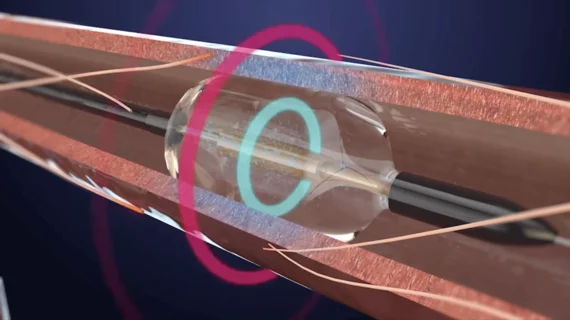FDA panel votes in favor of Recor Medical renal denervation system
Members of a U.S. Food and Drug Administration (FDA) advisory panel have voted in support of the premarket approval application (PMA) Recor Medical submitted for its Paradise Ultrasound Renal Denervation (RDN) system.
The system was designed to reduce blood pressure in patients with uncontrolled hypertension who are unresponsive to traditional medications. It uses catheter ablation to target nerves in a patient’s renal arteries, increasing blood flow to the kidneys and removing excess water.
Reviewing data from three different trials—RADIANCE II, RADIANCE-HTN SOLO and RADIANCE-HTN TRIO—the panel voted by a count of 12 to 0 that the device was safe to use for patients with uncontrolled hypertension. The panel also voted by a count of 8 to 3, with one member abstaining, that the system was effective for the treatment of these patients.
Finally, the panel voted by a count of 10 to 2 that the benefits of the Paradise Ultrasound RDN system outweigh any potential risks.
“We are thankful to the FDA and advisory committee members for the thoughtful review and discussion of the Paradise system for the treatment of uncontrolled hypertension,” Lara Barghout, president and CEO of Recor Medical, said in a statement. “We will continue to work closely with the FDA in advance of our anticipated PMA approval and feel confident in the impact that Paradise Ultrasound RDN could have in addressing a significant unmet need.”
This does not represent a final decision from the FDA. The agency often votes in line with its advisory panels, but this is not always the case.
Committee members share some concerns
After the voting was completed, committee members had the opportunity to explain their decisions. Keith Allen, MD, a cardiothoracic surgeon with St. Luke’s Hospital in Kansas City, said he voted “no” to the questions related to efficacy and risks. He had concerns about the device’s durability, in addition to questions about how it may be used in a real-world setting.
Changes to the device’s instructions could make him consider voting “yes” on the benefit/risk question, Allen said, but it would not sway his opinion about its efficacy.
Mark Lockhart, MD, a diagnostic radiologist with the University of Alabama Birmingham, also voted “no” to the efficacy question, primarily because he thinks the device’s indication should be reworked.
Meanwhile, some committee members voted “yes” to all three questions, but still had key questions. For example, Eric Bates, MD, a cardiologist with the University of Michigan, voted “yes” to each question, but shared concerns that the device may be overused in a real-world setting.
The panel’s full discussion about the Recor Medical Paradise Ultrasound RDN system can be viewed here. Additional details about the panel’s meeting are available here.
Back in June, the FDA announced its Circulatory System Devices Panel would review PMA submissions for RDN systems from Recor Medical and Medtronic. No final announcement has been made about Medtronic’s PMA submission at this time.

